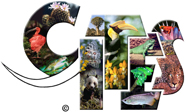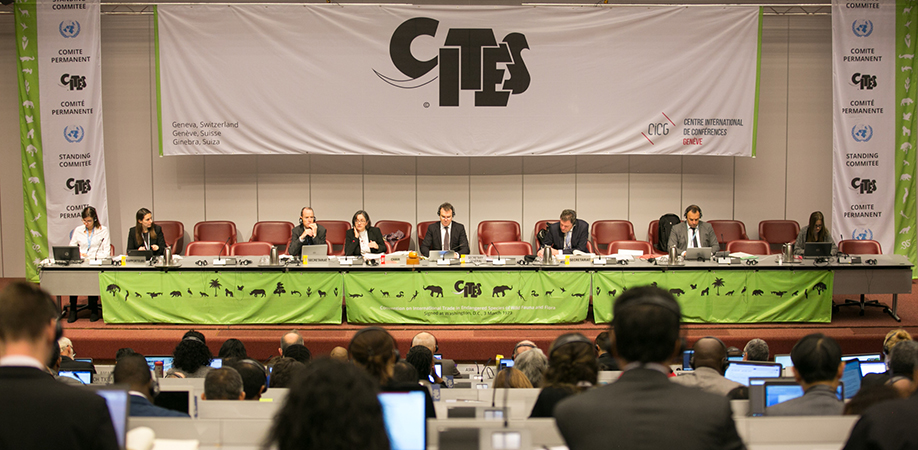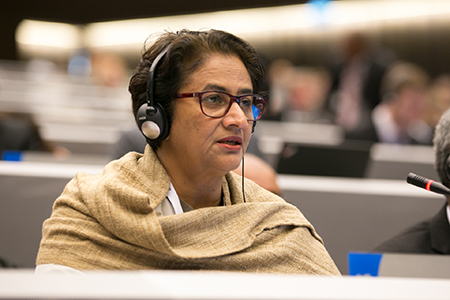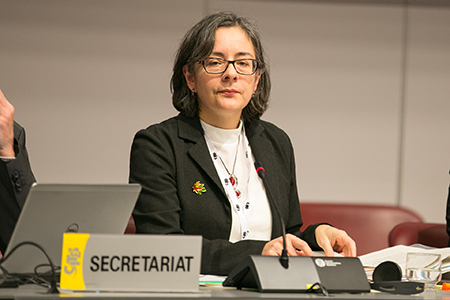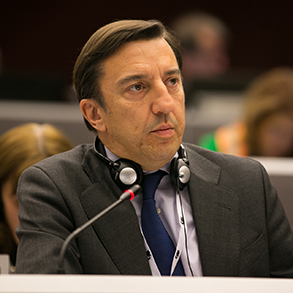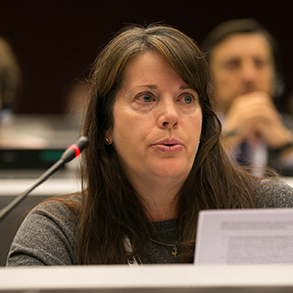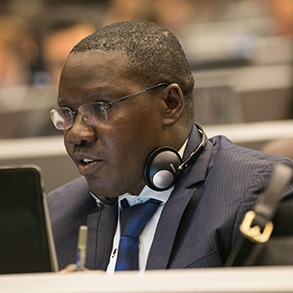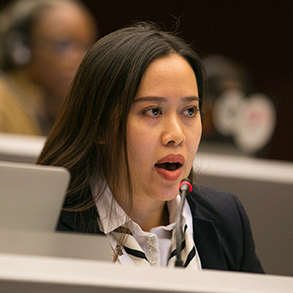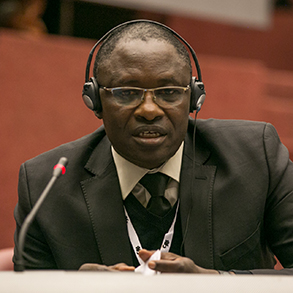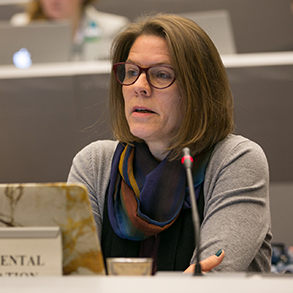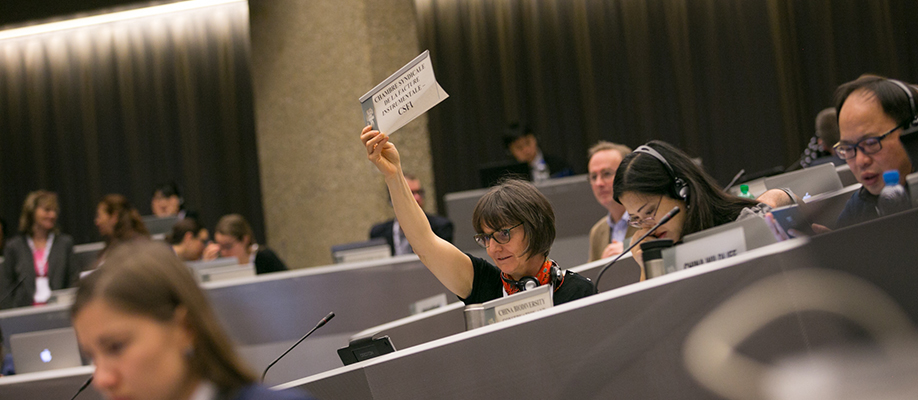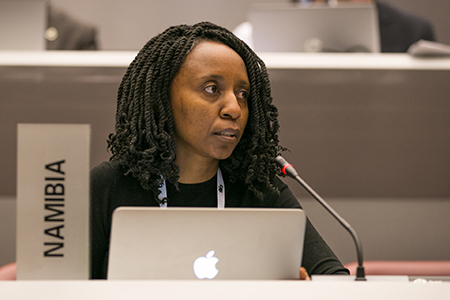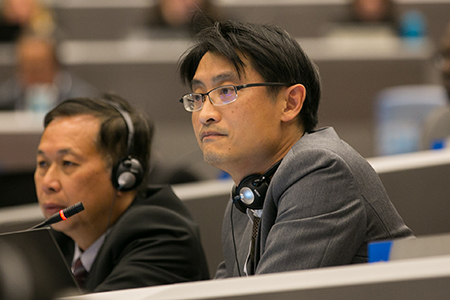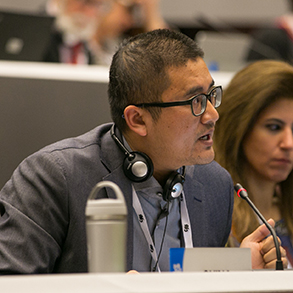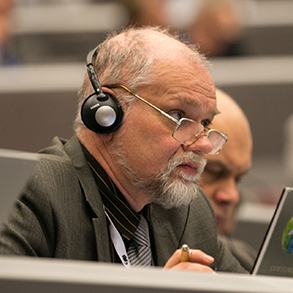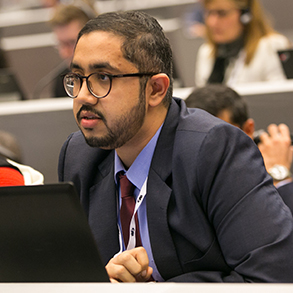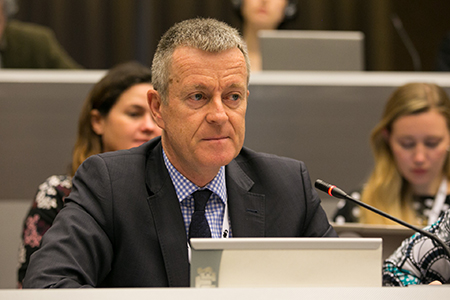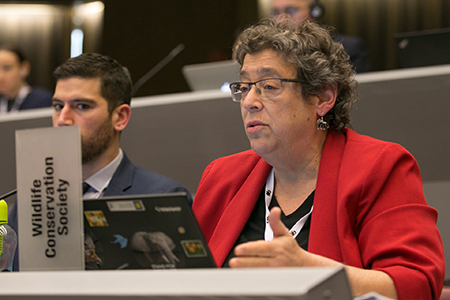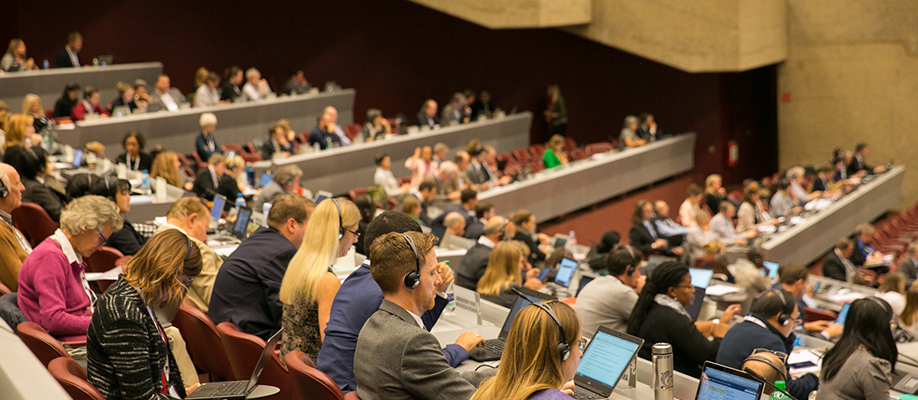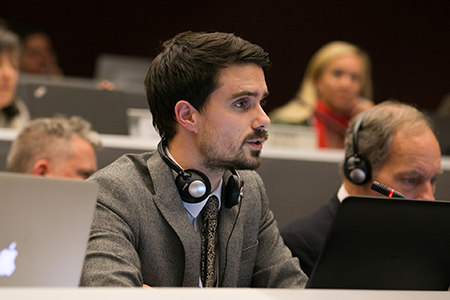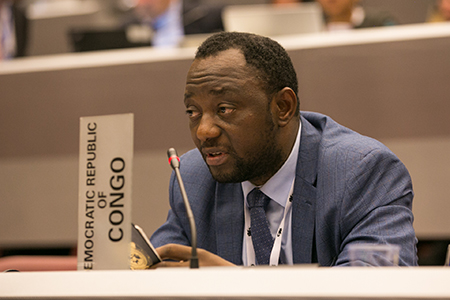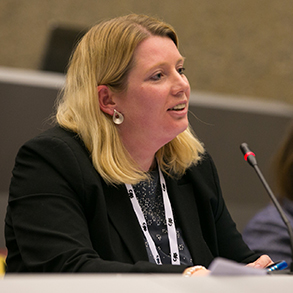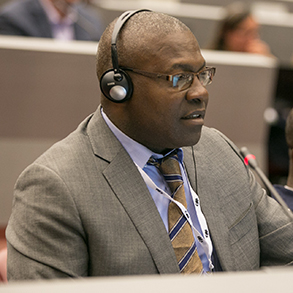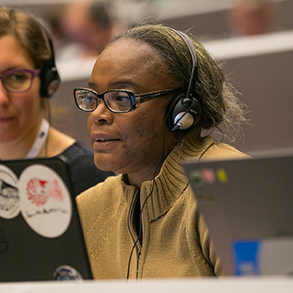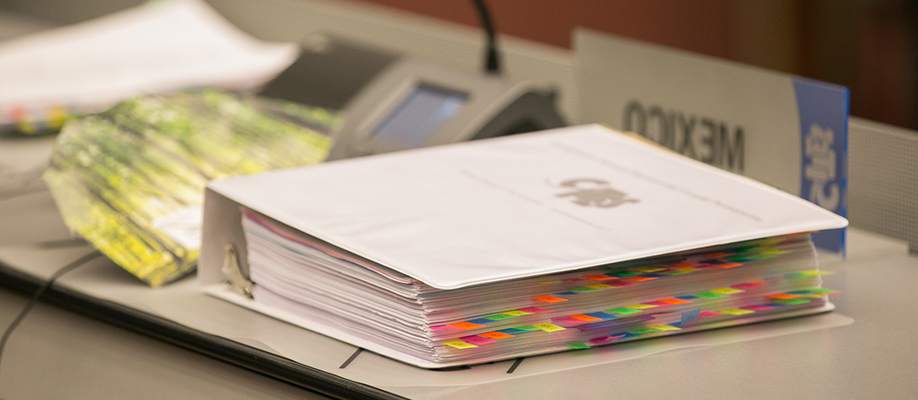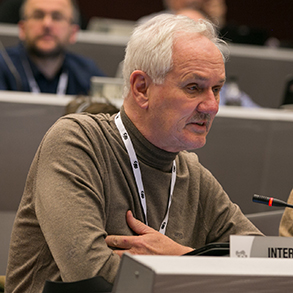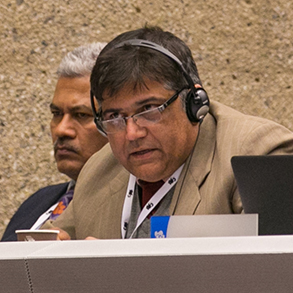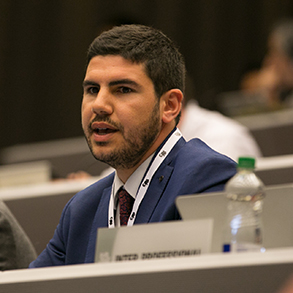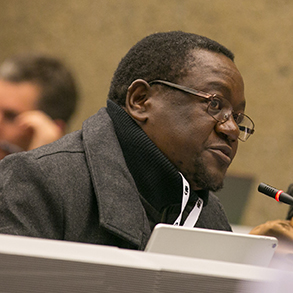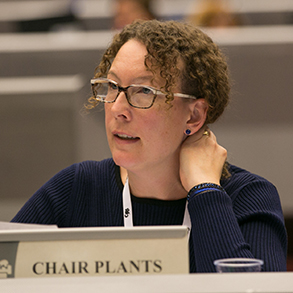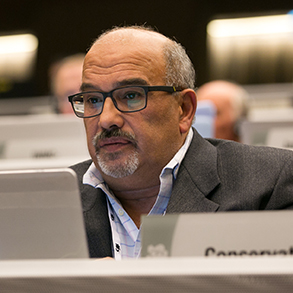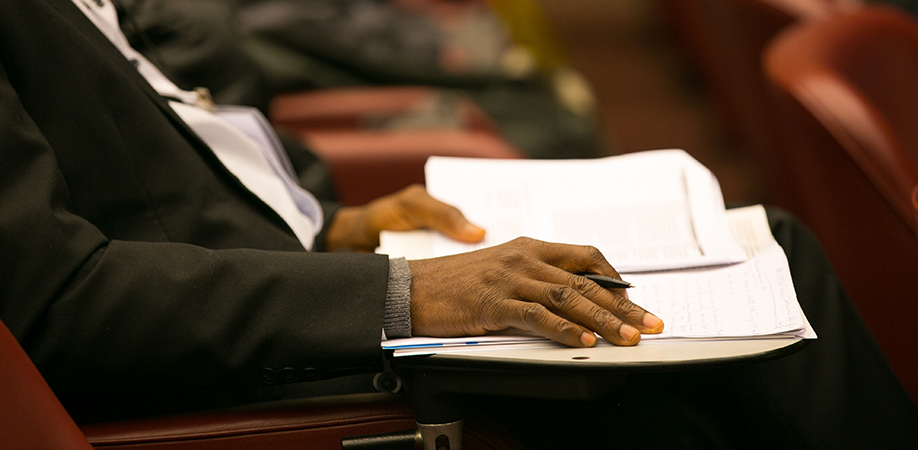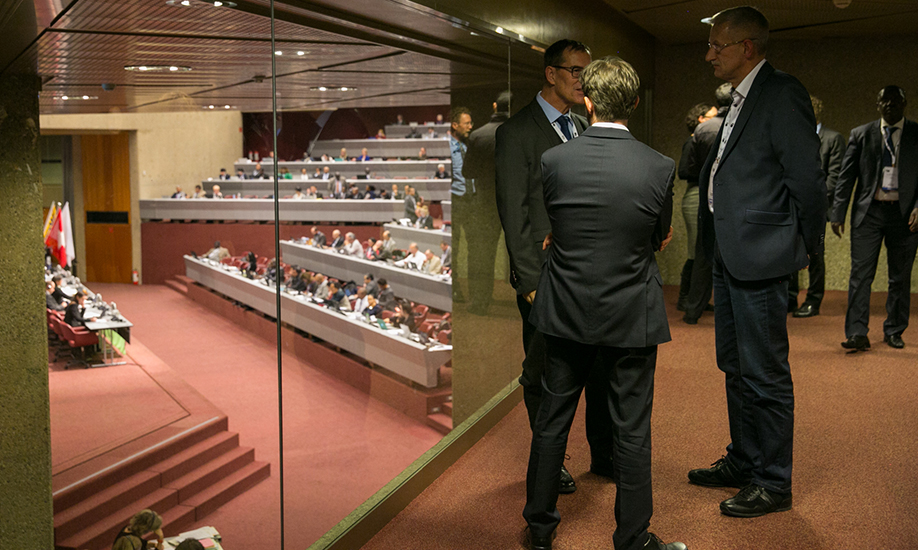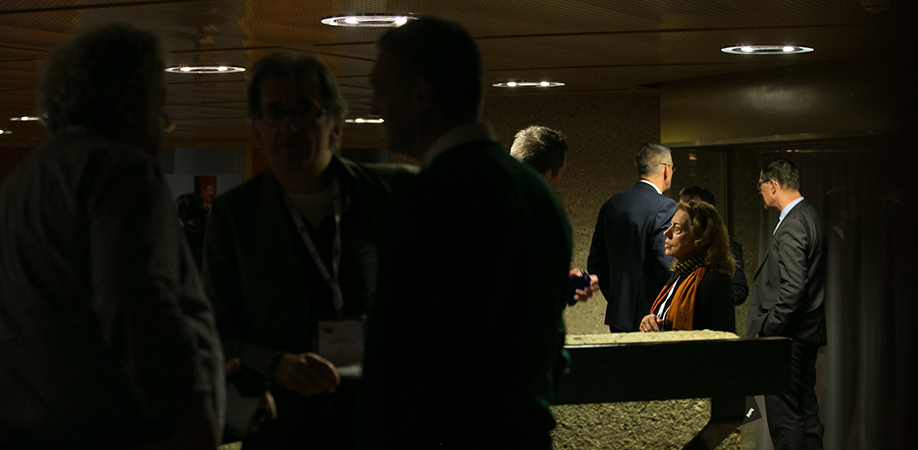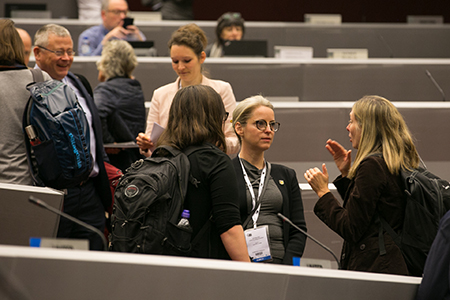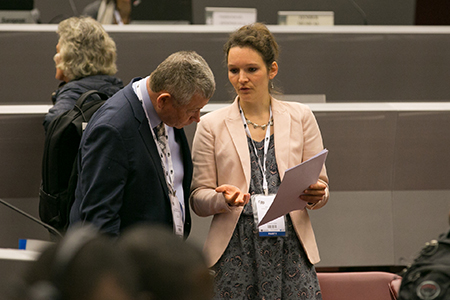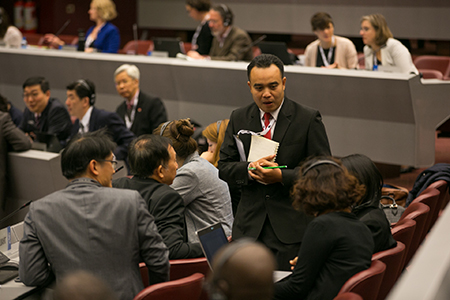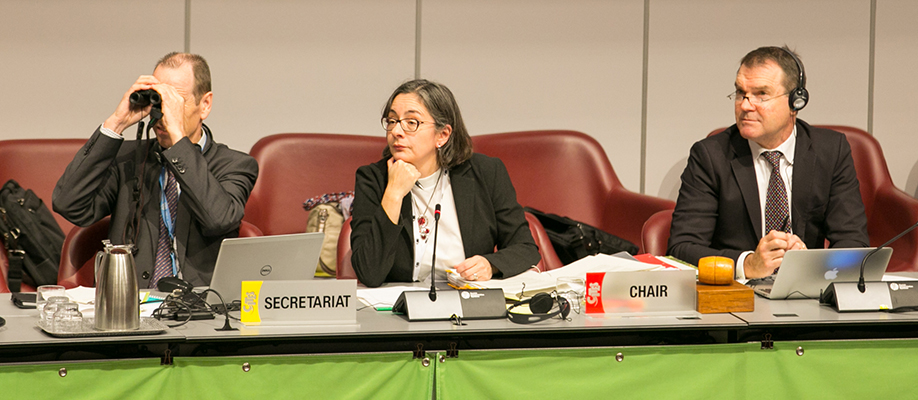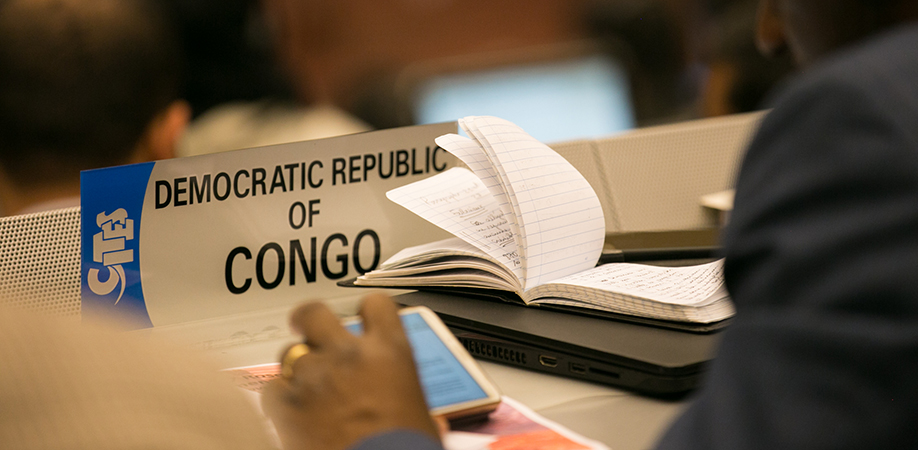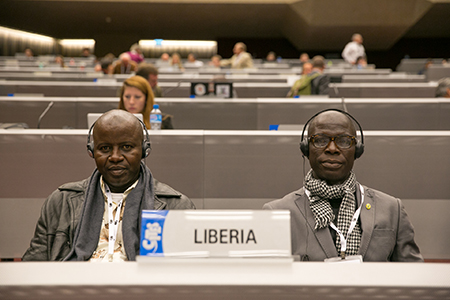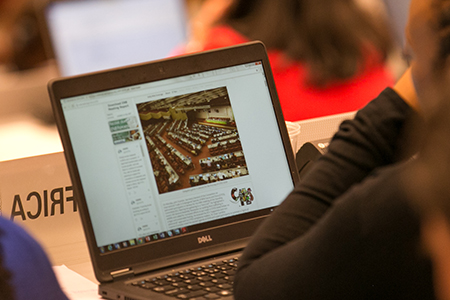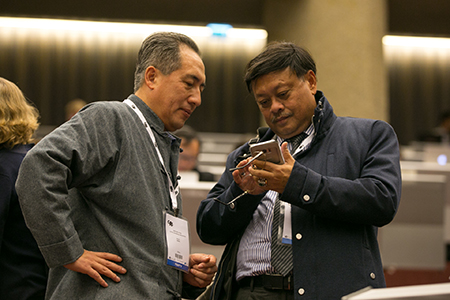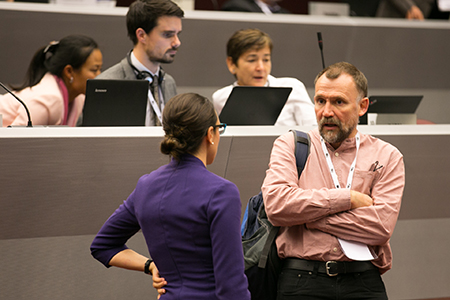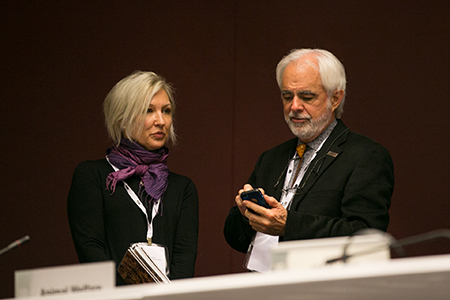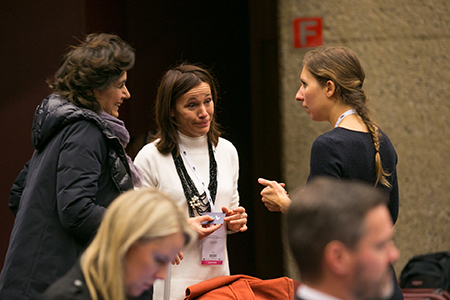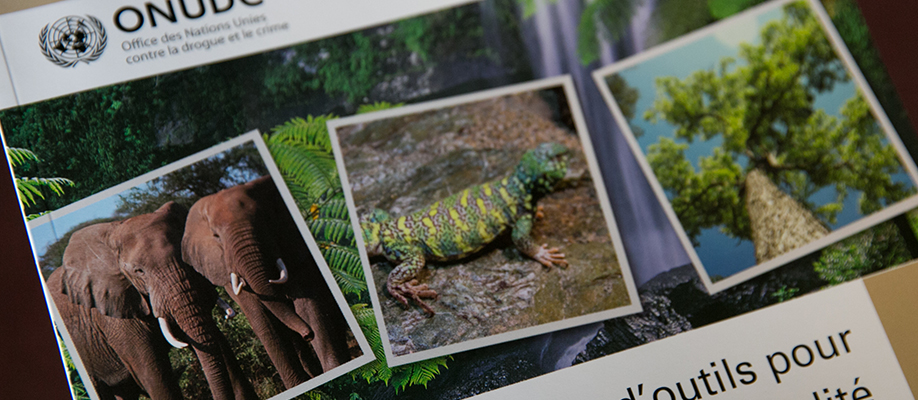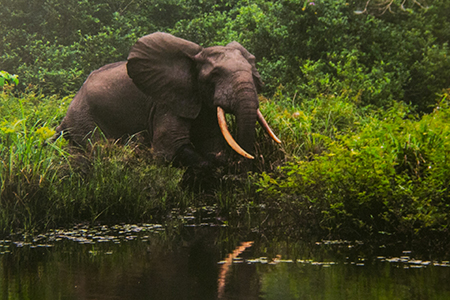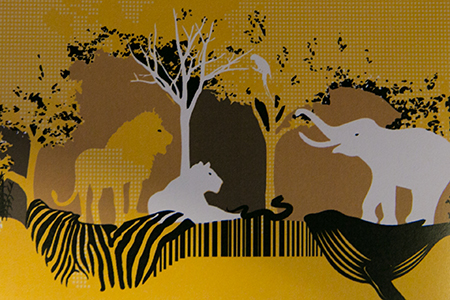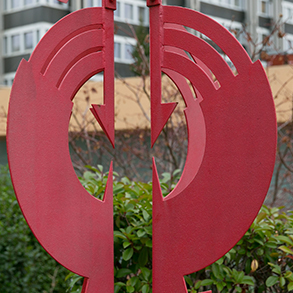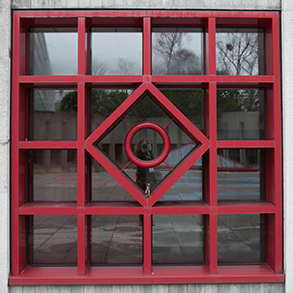Summary
On Tuesday morning, the 69th meeting of the Standing Committee of the Convention on International Trade in Endangered Species of Wild Fauna and Flora (CITES SC69) reconvened to address outstanding agenda items from the day before. While Standing Committee (SC) Chair Carolina Caceres urged participants to make their interventions brief in an attempt to expedite discussions, several issues prompted extensive debate.
In the morning, the SC addressed timber issues, with the CITES Secretariat proposing to maintain the recommendation for parties not to accept exports or re-exports for commercial purposes from Madagascar of specimens of Diospyros spp. and Dalbergia spp. A number of issues on elephants were discussed, ranging from commending the efforts made or underway by some parties to close their domestic ivory markets, and addressing progress on National Ivory Action Plans (NIAPs), including concerns related to the Elephant Trade Information System (ETIS) methodology. In-session working groups were set up to address timber and elephant issues.
In the afternoon, the SC considered humphead wrasse, pangolins, illegal trade in Tibetan antelope, rhinoceroses and interpretation of annotation #15. The SC struck in-session working groups on humphead wrasse, pangolins and Tibetan antelope, among others.
IISD Reporting Services, through its Earth Negotiations Bulletin (ENB) Meeting Coverage, has provided daily web coverage, and a summary and analysis report from the 69th Meeting of the CITES Standing Committee. The summary and analysis is available in HTML and PDF.
Photos by IISD/ENB | Kiara Worth
For photo reprint permissions, please follow instructions at our Attribution Regulations for Meeting Photo Usage Page.
Morning Plenary
View of the dais during the morning plenary
Bénédicte Johanita Ndahimananjara, Minister of Environment, Ecology and Forests, Madagascar
Carolina Caceres, Standing Committee (SC) Chair, Canada
Jorge Rodríguez Romero, EU
Anne St. John, US
Charles Tumwesigye, Uganda
Ha Thi Mai Trang, Viet Nam
Malachie Ndikimbaye Dolmia, Chad
Susanne Breitkopf, Environmental Investigation Agency (EIA)
An observer organisation raises her placard to be included in a working group
Elly Hamunyela, Namibia
Pinsak Suraswadi, Thailand
He Jingxin, China
Anton Mezhnev, Russian Federation
Obaid Ali Al Shamsi, United Arab Emirates (UAE)
John Stephenson, Stop Ivory
Susan Lieberman, Wildlife Conservation Society (WCS)
Afternoon Plenary
Delegates during the afternoon plenary
Dan Challender, International Union for Conservation of Nature (IUCN)
Augustin Ngumbi Amuri, Democratic Republic of the Congo
Liv-Stephanie Bantle, Norway
Narcisse Lambert Mbarga, Cameroon
Aurélie Flore Koumba Pambo, Gabon
Willem Wijnstekers, International Council for Game and Wildlife Conservation (CIC)
Soumitra Dasgupta, India
Lois Lelanchon, International Fund for Animal Welfare (IFAW)
F.U. Mangwanya, Zimbabwe
Adrianne Sinclair, Chair, CITES Plants Committee
Marco Pani, Conservation Force
Around the Venue
Delegates speak informally while plenary proceeds
Delegates before the start of plenary
David Morgan, CITES Secretariat; Carolina Caceres, SC Chair, Canada; and John Scanlon, Secretary-General, CITES, scan the plenary for speakers
Delegates from Liberia
A delegate reads the International Institute for Sustainable Development (IISD) Earth Negotiations Bulletin (ENB) website to keep track of negotiations
Delegates between sessions
